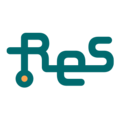General description of WEpods project
Robot Engineered Systems (RES) is developing self-driving shuttle buses called WEpods. In the last few years, we developed software for two WEpods. They are driving at Weeze airport in Germany and Wageningen University campus, in mixed traffic on public roads. Those WEpods are small, 6 person shuttles that drive at limited speed (max 25km/h). The fact that we have a permission to test and operate on public roads makes us quite unique in The Netherlands, the EU, and even worldwide. Currently, we are in the process of building our new, next generation autonomous shuttle bus, as part of the EU subsidized Interreg Automated Transport project. It will be equipped with several cameras, radars, and lidars to provide a clear perception of the world around us. The bus will have space for 16 persons and our goal is to make it drive autonomously up to 50km/h. This increase in speed from 25km/h to 50km/h requires improvements at practically all levels of our current hardware and software stack.
Robot Engineered Systems is part of Robot Robots Company and has two sister companies called Robot Care Systems and Robot Security Systems, respectively developing an elderly care robot and a security robot. Robot Robots Company is a young, fast growing scale-up company, with lots of interesting development projects going on. We all work in the same building, so you will be part of an inspiring and fun engineering team. We are located in Delft, close to the TU Delft and next to the busstop on the rotterdamseweg.
Project I: "Simulation scenarios for autonomy benchmarks"
Research and describe the different traffic situations that can be encountered and implement them into our simulation environment. Think about different types of intersections, roundabouts, buildings, weather conditions, etcetera, in combinations with different sets and behaviors of traffic participants in those scenarios. This quickly results in large amount of test variations, that preferably are all (or at least the most relevant ones) automatically tested and scored to benchmark the autonomous driving performance.
The goal of this internship is to select the most important scenarios, come up with the right performance metrics and implement them. The next step is to do automated scoring, which means at least marking a simulation as failed (in case of a collision) or succeeded (no collision), but preferably includes other scoring as well (such as comfort or safety). The internship will be done using Ubuntu Linux, ROS (Robot Operating System) and the Carla simulator. Python will be the main programming language (and maybe some C++).
Project II: "Simulated agents for path planner testing"
To test our path planner in more realistic simulated scenarios, traffic participant behavior should become interactive. This means that they respond to our vehicle and to other traffic participants. Therefore, agents (controllers) should be created that model the traffic participant behaviors, using predetermined trajectories and traffic interaction rules. Furthermore, these models can also include driving style, such as taking more/less risk and driving faster/slower.
The goal of this internship is to create agents that model the behavior of other traffic participants (such as cars and pedestrians) and that realistically react to other traffic participants. The internship will be done using Ubuntu Linux, ROS (Robot Operating System) and the Carla simulator. Python will be the main programming language (and maybe some C++).
Project III: "Simulated worlds for perception testing"
We have different perception algorithms that run offline and online, such as mapping, localization and object detection. To test these, we need to simulate how the sensors perceive the world. The sensor stack includes cameras, Lidar, a GPS device and more. We have maps available of the predetermined routes were the autonomous vehicles will drive. These maps can be imported into a game engine. Then, we can create an approximate 3D world along the route, by adding models of buildings, cars and vegetation, in order to have more realistic inputs from our different sensors. Furthermore, by changing the lighting conditions and the sensor noise, the robustness of the perception algorithms can be tested.
The goal of this internship is to create an approximate 3D world of the route where we will drive, vary the environmental conditions and noise, and develop programs to test the robustness of the perception algorithms. The internship will be done using Ubuntu Linux, ROS (Robot Operating System), the Carla simulator and Unreal Engine 4. Development will be done in Python and C++.
